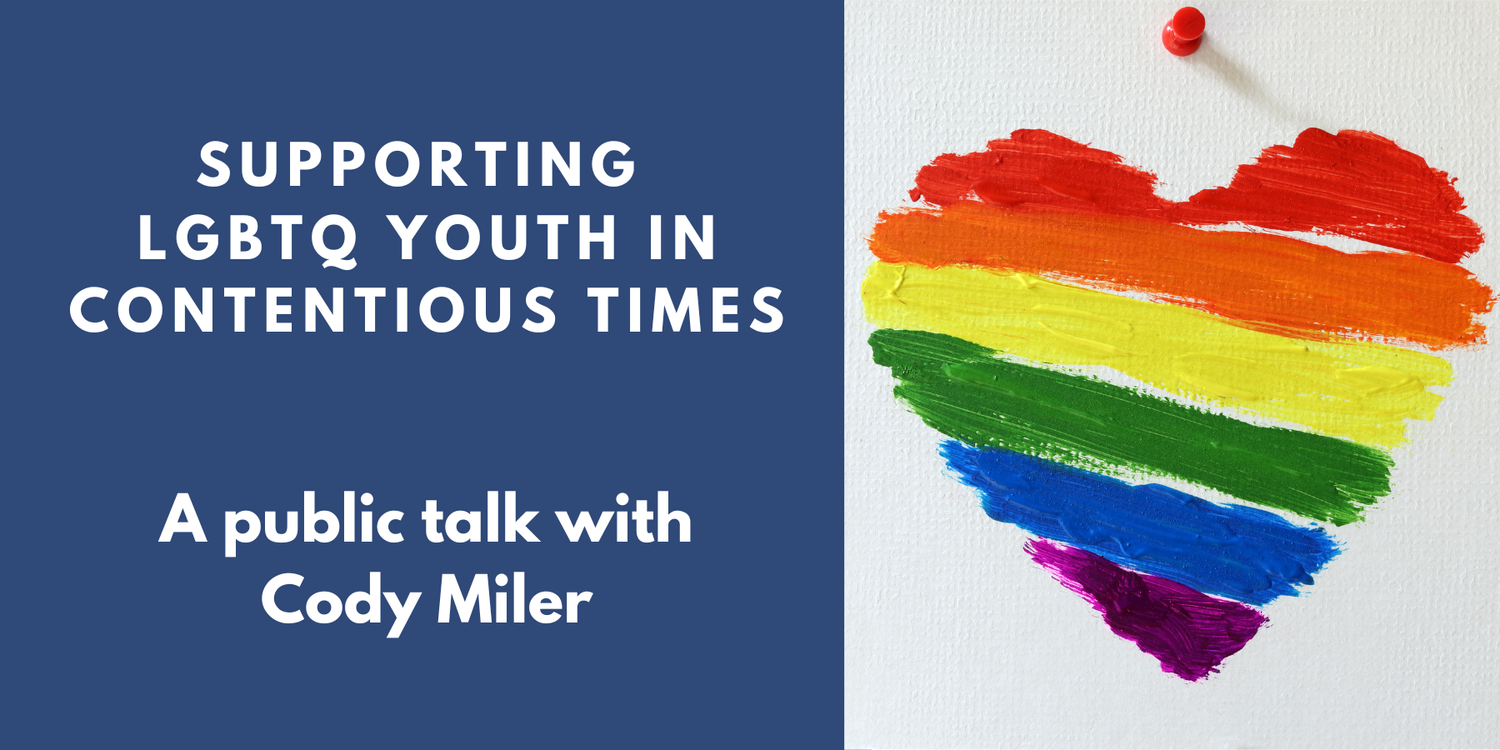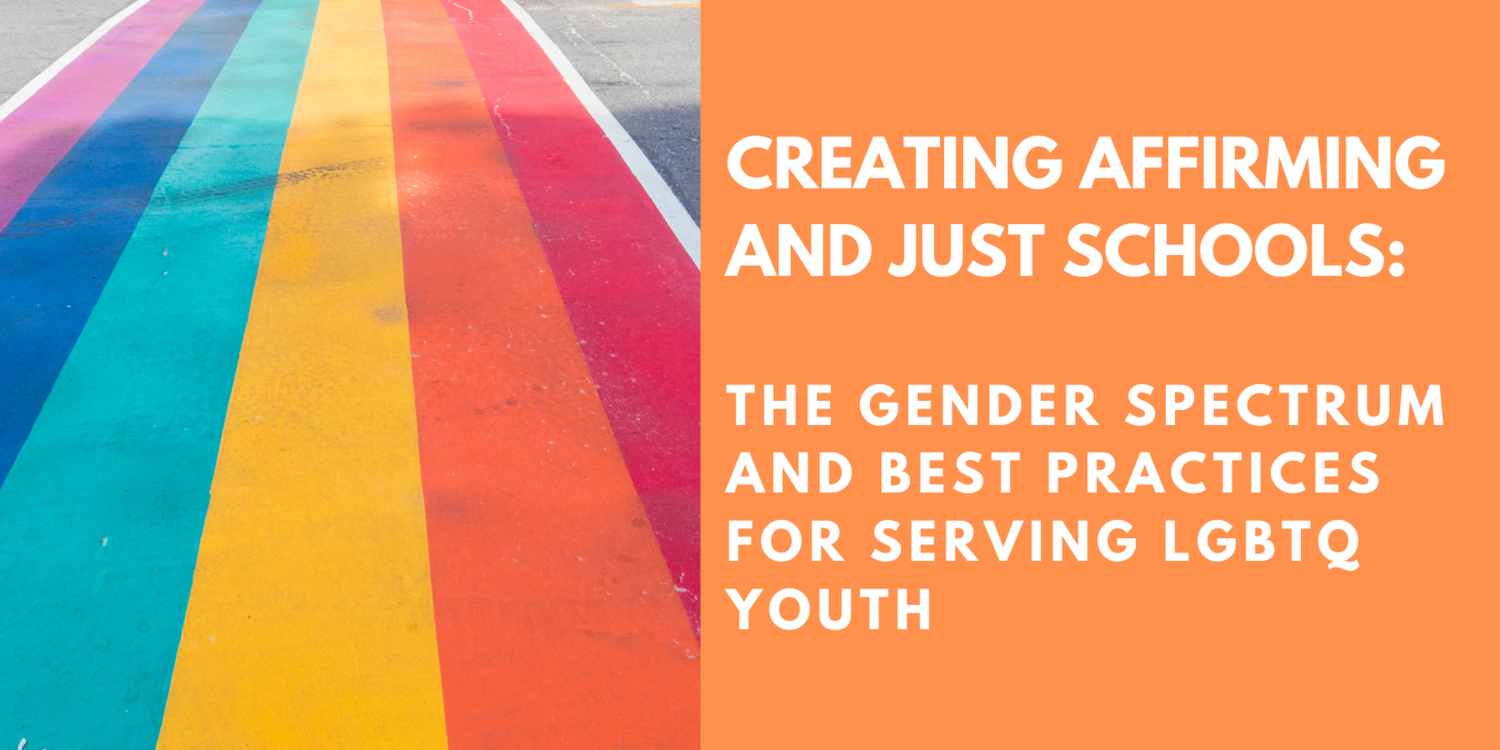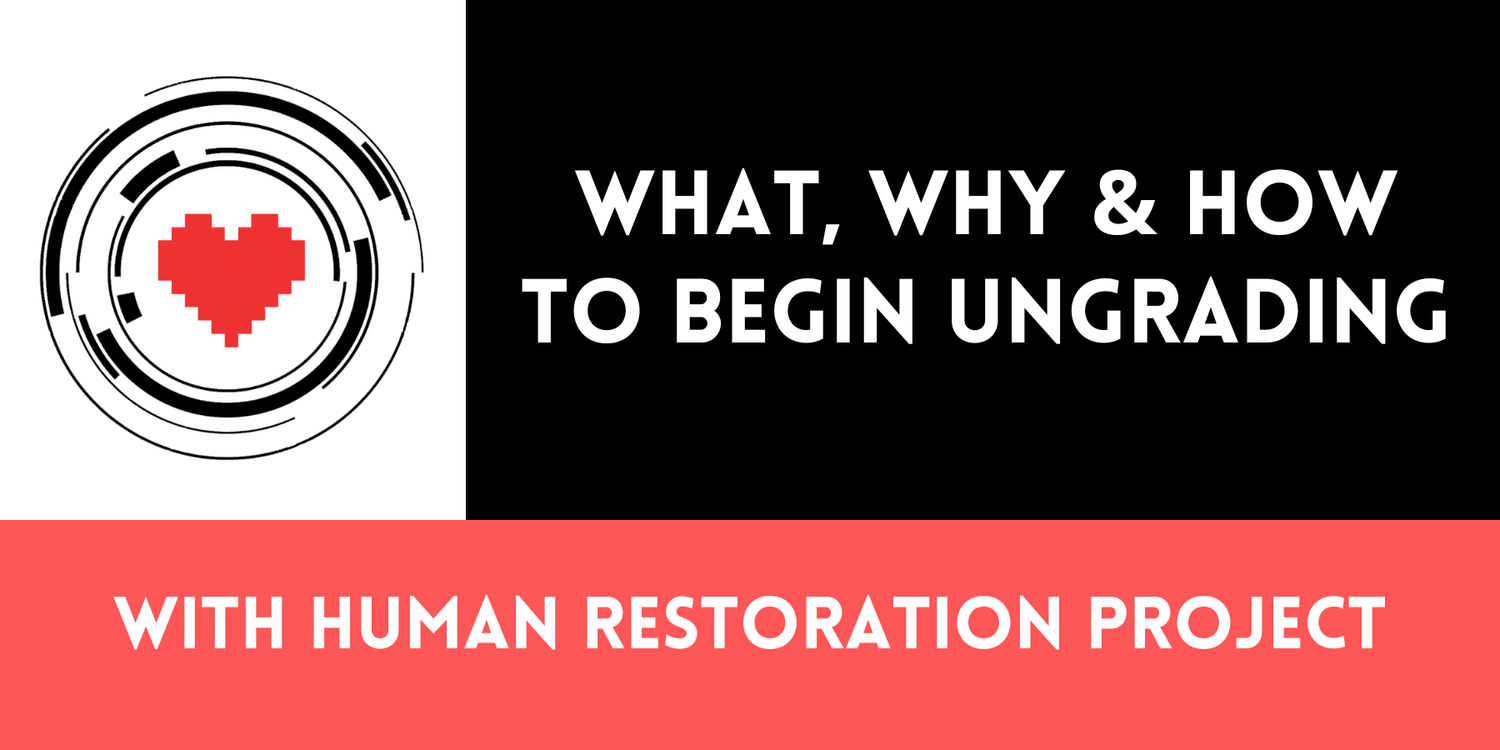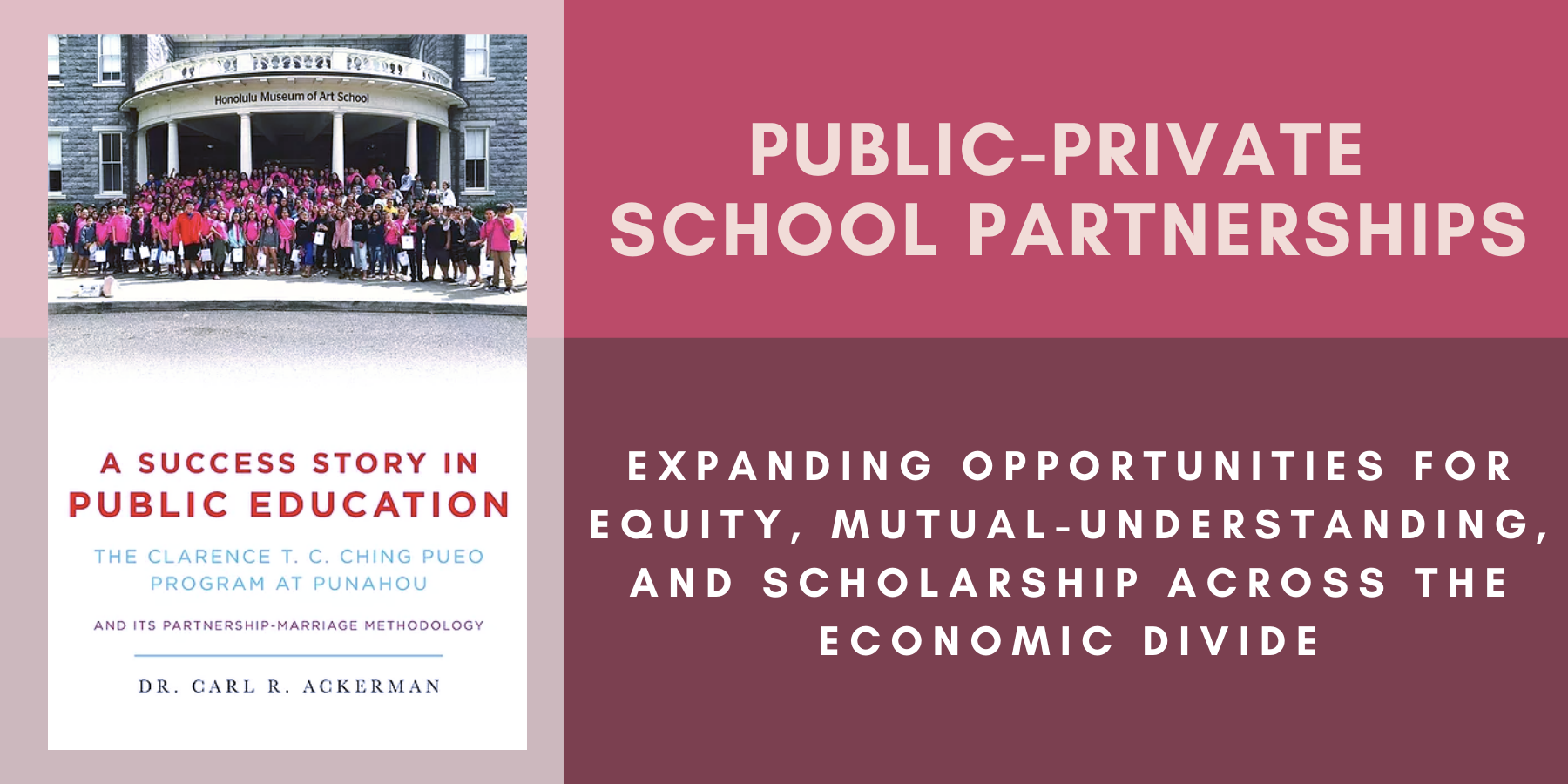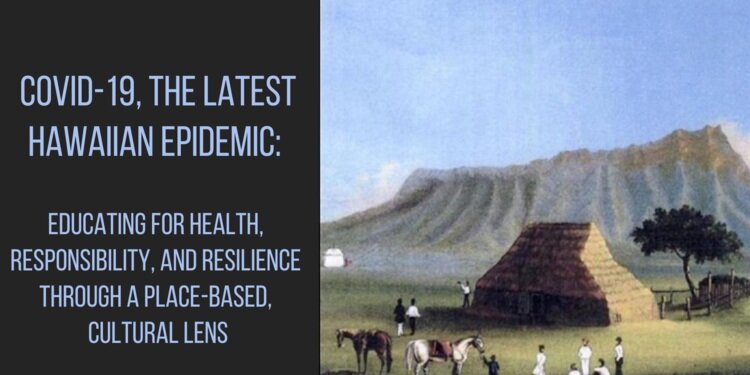PDC Workshop Recordings to support Teaching through a pandemic
In response to the tremendous demands placed on educators as they work to teach through a pandemic, the Hanahau'oli PDC is now making recordings of the following completed online programs available to all PDC email subscribers for personal viewing using the button below. If your organization is interested in one of the presenters leading a synchronous PD session tailored specifically for your team, email us at pdc@hanahauoli.org and your request will be shared with the presenters to determine their availability.
Students who don’t conform to narrow gender norms and LGBTQ students deserve to have their identities affirmed by educators across grades, subject areas, and schools. Yet, headline after headline reveals new attacks that specifically target LGBTQ youth across the country. These attacks represent real threats to the democratic potential of schools and to the ideas of pluralistic democracy. People who work within and outside of public schools must be vigilant in challenging these harmful trends. This talk will address some steps that can be taken to create welcoming, affirming schools for LGBTQ youth.
Students who don’t conform to narrow gender norms and LGBTQ students deserve to have their identities affirmed by educators across grades, subject areas, and schools. This workshop will engage participants in thinking about how we can improve curriculum, pedagogy, and policies to better support the experience of LGBTQ students in our schools. By naming and challenging systems of harm, they will explore how educators can work together to create teaching and learning spaces where LGBTQ students have their identities affirmed.
Ungrading is a growing movement to shift the focus from grades to feedback in the classroom. We know from decades of research and hundreds of studies that grades demotivate, stress, and harm students. Instead, we can create spaces that promote human flourishing and purpose-finding by breaking barriers to learning.
What role should tests play in progressive pedagogy? It depends on what one means by “test.” In this public talk Dr. Andrew Ho of the Harvard Graduate School of Education explores the relationship between quantitative assessment and progressive education, highlighting the fragile place of quantitative assessments in progressive classrooms to measure and inspire learning. When should a “three-way conference,” or any other classroom assessment, result in quantitative scores? How do children, teachers, and parents interpret such scores? Can scores be useful for progressive aims? Or are scores too powerful, leading to triage, discouragement, and competition?
Together with progressive educators at Hanahau`oli School, you are invited to engage in a workshop to better understand how young children learn language, build/strengthen your child-centered mindset, and discover strategies for engaging with your child at their current stage of language-learning. Examine some of the worries or frustrations that may come with supporting young language-learners and gain insights on how children’s passions, interests, and curiosities can become a vehicle for learning.
In this workshop learn how to apply Gorski’s equity literacy framework to increase academic excellence through the use of authentic literature. The workshop focuses on the application of equity literacy to selecting PK-12 literature, and provides sample trade books, organized into seven strands and areas for supporting curriculum development: race, social class, culture, global perspectives, power and privilege, gender/sexuality, and intersectionality.
Captains & Poets programming offers the opportunity to illuminate for students that they are whole, resourceful beings who have what they need within them to navigate their personal journeys and the world around them in a way that enables them to thrive. The program also highlights how being their best self not only serves them, but also serves others. Explore the surrounding context for this timely curriculum, learn to connect with our own Captain and Poet, and walk away with practical ideas for creating greater connection and belonging in your classroom.
How might school leaders and educators create space in the school day that “honors and nurtures students’ natural curiosity and innate desire to learn, fostering internal motivation and the discovery of passion and purpose?” In this workshop, Melissa Speetjens, Principal of Waimea Canyon Middle School and Serena Cox, former Deeper Learning Instructional Coach at Waimea Canyon Middle School, will share about their work with a 20% Time framework.
Research shows that integrating music into a child’s life facilitates learning in other subjects at school and enhances skills that children inevitably use in diverse areas of their lives. At this two hour on-line experience, learn from Hanahau‘oli School music teacher, Leah Abbe Bloem, about why music education is important and how families can integrate music education and play into their lives at home. Then hear from ʻukulele virtuoso, Jake Shimabukuro, about strategies to get started with making music at home with your kids.
De-escalating classroom conflict starts by connecting with students, choosing a process, and then channeling their energies into more productive spaces. This session will break down those three steps--Connect, Choose, Channel--into specific strategies. Since every student, parent, and situation are unique, Dr. Fowler will give you a variety of options to choose from. The goal is to empower you to be in control of academic conflict and guide it toward a productive resolution.
Math picture books can be fun and effective tools to introduce and explore mathematics concepts without being overly technical. Journey with us through the characters' eyes to investigate and solve measurement questions. We will extend our exploration through related activities and share how this use of math picture books can be transferred to your classroom.
Creating a liberatory, human-centered classroom goes beyond a simple lesson plan or one-and-done workshop session. Instead we must radically reimagine what a classroom is, questioning our assumptions about schooling, students, and educators. In this workshop, participants will learn about progressive systems in education, including research, inquiry questions, and interactive activities to push for educative systemic change.
The Hanahau'oli Professional Development Center teamed up with the Pacific Alliance against COVID-19 (PAAC), under an award from the National Institutes of Health, Rapid Acceleration of Diagnostics Underserved Populations (RADxUP) to offer this free, two-day Panel-Town Hall event, focused on providing strategies for safer school reopening and addressing your questions.
Remote island communities need agricultural science education to address important regional issues of food security and sustainability. View this workshop to learn how to utilize a collection of teaching resources produced by the Food Experiences for Agricultural Science Teaching (FEAST) Project.
Hear from a panel of diverse thought leaders who will explore the relevance of progressive philosophy in present times. As we collectively make our way through the COVID-19 pandemic recovery period, we want to wonder together, how might a progressive philosophy support individuals, schools, and society at-large in creating lasting positive change.
This Hands-on workshop is ideal for children grades K to 8 and educators who work with elementary and middle school age children. The workshop focuses on connecting keiki, families, and educators to place-based resources that bridge the process of building, creating, and imagining Hawaiʻi through their own experiences. Participants will learn about some of Hawaiʻi’s most amazing and endemic forest species by imagining and creating their very own rainforest diorama, then explore a free digital application, Piskel to bring their rainforest to life.
Learn how to incorporate play and storytelling methods in your teaching and life by engaging with master storyteller, Dr. Kevin Cordi. This series of five two-hour workshops explores ways to live inside the books you read, how to share your story through play, finding the story within you, rethinking narrative’s place in your work, school, or community, and finding YOUR story.
In this public talk, Dr. Carl Ackerman shares his plan to provide students in the public sector with an “equal playing field,” so that they can succeed in their public school educational pursuits and go on to college, as document in his book, A Success Story in Public Education: The Clarence T. C. Ching PUEO Program at Punahou and Its Partnership-Marriage Methodology.
This workshop engages participants in thinking about how we can improve curriculum, pedagogy, and policies to better support the experience of LGBTQ students in our schools. They will be introduced to readings, participate in discussions, and review a number of powerful resources designed to support educators and school leaders on their journey to create just schools for LGBTQ youth.
This workshop provides an introduction to the Social Justice Framework as well as a deeper dive into each of the four interlocking domains—identity, diversity, justice and action. With textual and curricular examples of each standard, participants will gain an understanding of how to integrate elements of both prejudice reduction and collective action into their work as social justice educators.
In this Japanese presentation, learn about Hanahau‘oli School from Yosuke Horikoshi, a visiting scholar from Japan who stayed at the school for six months conducting research on Philosophy for Children. Mr. Horikoshi shares lessons learned at Hanahau‘oli, connections between Hanahau‘oli and the progressive philosophy and pedagogy of John Dewey, and a general comparison between Japanese and American schools.
What is arting? It is when the visual arts are animated! Writers animate through writing. Visual artists then, animate through arting. Traditionally, the visual arts and literary arts have been taught as stand-alone subjects, when in fact their greatest relevance is their capacity to intersect and meaning-make together. This presentation includes a book talk followed by a hands-on arting and writing experience to support educators in making transformative connections between the literary and the visual arts.
Are you ready to answer the call of the progressive education movement? Apply for the University of Hawaiʻi at Mānoa's new Progressive Philosophy and Pedagogy, MEd Curriculum Studies with the inaugural cohort beginning next Summer 2021. Join like-minded progressive educators seeking to create a better future society through work with children, schools, and communities. As a Professional Development School and partner in this program, field experiences are also available at Hanahauʻoli School.
Applications are being accepted now through February 15, 2021. Meet program coordinators Dr. Amber Strong Makaiau and Dr. Chad Miller and learn how you can be a part of the movement! Click here for more information about the program and to apply.
Recorded on November 7, 2020
Click on the image above for a detailed description of this workshop and for information about the presenter, John Kim.
“It was a very much needed webinar as parents are enduring virtual learning at home fatigue. John's suggested activities can be turned into short activities our afterschool program can include in the monthly newsletter.” - Susan Young
In this public talk, Hanahau‘oli School counselor, John Kim provides parents and caregivers of young children ages 3-10 with an overview of concepts from child and family-focussed expressive arts therapy. Through lecture, demonstration, and group discussion, participants explored the specific power of individual art forms and how this can increase attunement between parents/caregivers and children. Participants also observed brief arts-based processes that can be used as a reference in creating their own conjoint play experiences for their child(ren) and bring more joy into their home environment.
Family meetings are an effective structure for honoring the voice of each member of the family in a system that models the world beyond the home. With its co-created norms, they are an opportunity for honest communication, for resolving conflicts, and for collaborative planning. Through this experience, children grow in their ability to express themselves and learn how to face challenges creatively and cooperatively. Join Linda Inlay of Awakening Wisdom in a 90 minute public talk aimed at presenting parents with practical information on how to use this valuable tool to grow essential life skills.
Recorded on September 8, 2020
Click on the image above for a detailed description of this workshop and for information about the presenter, Barbara Dougherty.
“Time flies by so fast when you're having fun. This seminar was so interactive and fun that two hours came and went so quickly. It's definitely worth attending. There are great instructors and clear instructions given.” — Abigail Eli
Math games provide opportunities to bring learning to life, actively engage students, and enhance conceptual understanding. Often, math games only focus on skills review, and miss valuable conceptual learning opportunities. In this workshop educators are introduced to a toolkit of games created by the Curriculum Research and Development Group of the University of Hawai‘i at Mānoa, that emphasize conceptual understanding and strategy development, which allow students to use their new skills and further develop their understanding of mathematics.
To purchase a copy of the textbook, visit: crdg.hawaii.edu/products/nsights-math-games
Recorded on September 1, 2020
Click on the image above for a detailed description of this public talk and for bios and presentation topics for the presenters, Colin Moore, Rep. Amy Perruso, Keahe Davis, Jacqueline Jensen, and David Ball.
“I liked the passion of the speakers, their hands-on civic education for students, and their takeaways at the end. ” — Pamela Sakamoto
This public talk features a number of scholars, educators, and community organizations that are dedicated to making sure that students have access to learning about voting and elections, and that they develop the civic competencies to fully engage in the democratic process—whether that is at the community, local, state or national level. Topics addressed include political campaign strategies, the media’s impact on democratic processes, youth-led democratic movements, voter suppression, and the ways in which schools might engage students in the Fall 2020 election.
Recorded on August 11, 2020
Click on the image above for a detailed description of each of the talk and for information about the presenters, Dr. Alika Maunakea, Dr. Ruben Juarez, Kaleolani Hanohano, Alison Kaʻolinokaimana Yasuoka, and Dr. Pauline W. U. Chinn.
“I feel inspired and motivated to get my colleagues on board with this very valuable organization, Kupaa Collective.” - Participant
Schools become sources of resilience when informed educators prepare students and provide outreach to families and the community by teaching, modeling and promoting mask wearing, cleaning, social distancing, and studying causes of clusters and spikes in cases. School-community health partnerships can further empower schools with targeted education, research, data, and transparent communication. Schools that partner with parents, community health centers, and researchers support the collection of localized, community level data needed to inform actions and policies to reduce COVID-19 transmission. Learn about the potential of school-community health partnerships, what we need to do, why we need to work together, and how you can participate with this free public talk.
Recorded on July 13, 15, 17 & 20, 2020
Click on the image above for a detailed description of each of the workshops in this series and for information about the presenters, Kaleolani Hanohano, Alison Kaʻolinokaimana Yasuoka, Riley Kauʻi Wells, Kyle Kolomona Nakatsuka, Dr. Alika Maunakea, Dr. Ruben Juarez, and Dr. Pauline W. U. Chinn.
“I would recommend these workshops because it is important for us as kumu to have a space amongst peers where we can share, learn, and grow together. This is always important, but most especially in this time. I also think I appreciate the way your team emphasized the importance of talking about Covid-19 with students because it is dominating every part of our lives at the moment. Being encouraged to meet this problem head on empowers us as teachers and as a community.” — Mahealani Treaster, Kanehunamoku Voyaging Academy
In this 4-part, interactive series, explore interdisciplinary lessons that examine Hawaiian historical timelines and science phenomena associated with COVID-19. These lessons will include hands-on activities, simulations, models, metrics, interactive discussions, historical resources, Hawaiian language newspaper articles, and up-to-date information on COVID-19 that you can use in schools and communities.
Workshop 1: The Hawaiian Kingdom, Newspapers, and Public Health Past, Present, and Future
Workshop 2: We Are All In This Together -- He Wa`a He Moku, He Moku He Wa`a (The Canoe Is An Island And The Island Is A Canoe)
Workshop 3: The Future Is Found In The Past -- I Ka Wā Ma Mua, Ka Wā Ma Hope (In Looking To The Past, We Can Inform The Present And Future)
Workshop 4: From Knowledge to Practice: Teaching for Resilience in the Face of Change
Recorded on June 23 - 25, 2020
Click on the image above for a detailed description of each of the workshops in this series and for information about the presenters, Dr. Kavita Rao, Dr. Cary Torres, and Dr. Sean J. Smith.
“A worthwhile 90 minutes. Research-backed info that directly applies to teaching children in Hawaii. Standards based information with flexible and adaptable tools. Useful handouts to use info with administrators, parents, and of course students. Enjoyable presentation with examples of how to integrate tech tools. Presentation inspires you to try the new information in your own context.” - Anonymous Participant
As we plan for the possibility of distance, online, and hybrid approaches to teaching when schools reopen, we can prepare to support all learners, including students with disabilities and ELLs in these novel and varied formats. This series of three online workshops addresses various ways to support students with disabilities and ELLs in alignment with The Universal Design for Learning (UDL) framework.
Workshop I: Digital Tools to Support Students with Disabilities and English Language Learners
Workshop II: Strategies for Multi-lingual learners: Culturally Responsive Teaching (CRT) Online
Workshop III: Home-School Connections: Empowering Parents to Support Students with Disabilities in Distance/Online Learning
Recorded on June 18, 2020
Click on the image above for a detailed description of this public talk and for information about the presenter, Linda Inlay.
“Thank you for offering such a wonderful seminar and seeing it through given these crazy times! … I think every parent and teacher should be introduced to "Awakening Wisdom"! We would have more resilient, thriving, happier and compassionate children who would be great leaders in the future!” — Anonymous Participant
With rising rates of stress, anxiety, depression, and suicide, how might parents support their children to become self-reliant, responsible, and empowered? Learn about the guiding principals of Awakening Wisdom, a Hawaii-birthed program which aims to develop school cultures that cultivate social-emotional wellbeing in students. The program has influenced thousands of students to become responsible, compassionate, and empowered human beings who contribute to their communities. At this talk, parents will learn how to apply concepts from Awakening Wisdom in their own homes.
Recorded on May 20, 2020
Click on the image above for a detailed description of this public talk and for information about the presenter, Dr. Shana Brown.
“Fascinating talk and a fruitful discussion afterwards. A great way to get some Professional Development without having to drive anywhere!” — Cheryl Treiber-Kawaoka, University of Hawai‘i at Mānoa College of Education
When the great 1918-1920 flu pandemic (sometimes known as the Spanish Flu) hit Hawai‘i, then a U.S. territory, there was significant loss of life and disruption to our economy, educational system, and medical institutions. It was also a time when our community developed new tools of resilience and adaptation. This program discusses the impact of the 1918 pandemic on Hawai‘i and how we might approach the current challenges of Covid-19 with lessons learned from a century ago.
Recorded on May 18, 2020
Click on the image above for a detailed description of this public talk and for information about the presenter, Linda Inlay.
“This is not a simple "how to" discussion on parenting during the pandemic but, instead, touches on the broader needs of children and the impacts of parenting styles that are particularly useful to think about in this moment.” Alyssa Bergeman, Honolulu, HI
The current pandemic has placed enormous stress on families as parents try to support their children’s academic learning and their social-emotional needs. The loss of regular contact with peers, an essential need for children, weighs heavily on them. Parents, not trained to be teachers, struggle with how to facilitate their child’s distance learning. Linda Inlay will share principles of Awakening Wisdom, a school culture approach for student social-emotional wellbeing that has influenced thousands of students to become responsible, compassionate, and empowered human beings who contribute to their communities.
Recorded on May 12, 2020
Click on the image above for a detailed description of this public talk and for information about the presenters, Dr. Chad Miller, Cheriesse Shiroma, Katie Matsukawa, Dr. Tammy Jones, and Dr. Thomas “Toby” Yos.
“Thanks so much for making that happen! It was very inspiring to get in touch with so many Wonderful People!! THANK YOU!! Many ideas for a better world!!” — Dr. Doris Daurer, Austria
Learn about p4c Hawai‘i, an innovative approach to education that transforms the schooling experience by engaging people in the activity of philosophy. Practiced in a variety of public settings beyond the classroom, p4c Hawai‘i engages participants in the activity of philosophy by creating intellectually safe communities of inquiry. Through the exploration of “big questions,” the cultivation of wonder and wisdom become pathways to new self-understandings and a better future society. Draw inspiration from speakerswho have used p4c Hawai‘i in a number of unique settings to accomplish these goals, and engage in dialogue to explore how philosophy can become a viable tool for citizens, both young and old, to make meaning of our rapidly changing world.
Recorded on April 22, 29, and May 6, 2020
Click on the image above for a detailed description of each of the workshops in this series and for information about the presenter, Dr. Michael Menchaca.
“This event provided so many useful resources that can truly assist and enrich online teaching and learning. …Our collaborative sharing and discussions will help us to better assist our students and their parents for greater success. Thank you so very much!” - Beverly Sandobal, Saint Joseph School
Join us for a series of 3 workshops offered by the University of Hawaiʻi at Mānoa College of Education’s learning design and technology expert, Dr. Michael Menchaca. Workshops focus on maximizing your inherent strengths as a passionate educator, best practices for online instruction, an introduction to an array of valuable tools and strategies, and a deep dive into maximizing Google tools for distance learning.
Workshop I: Best Practices for Crisis Online Instruction
Workshop II: Resources and Tools for Online Instruction
Workshop III: Working with Google Apps and Google Classroom
Recorded on April 20, 2020
Click on the image above for a detailed description of this public talk and for information about the presenter, Lee Gordon.
“Provocative and informative, an opportunity to consider the impact and change of integrated education. Learn about ways to challenge imaginations to think differently and see possibilities in the seemingly impossible. Bringing children together naturally brings families and cultures together. An amazing, inspirational story.” — Alison Wrenn Baclig, Hanahau‘oli School
Learn how educators are working to promote peace in Israel with Lee Gordon, co-founder of Hand in Hand: Center for Jewish-Arab Education in Israel. This groundbreaking non-profit has grown from serving 50 students at its inception in 1998, into a network of integrated public schools across the country, serving over 1900 Arab and Jewish children in environments that celebrate partnership and coexistence. Learn more about the ethnic, religious, and national conflict between Israelis and Palestinians, Jews, and Arabs; examine Hand in Hand's model for integrated, multicultural peace education; and be inspired by the work of a social justice educator and change maker.

